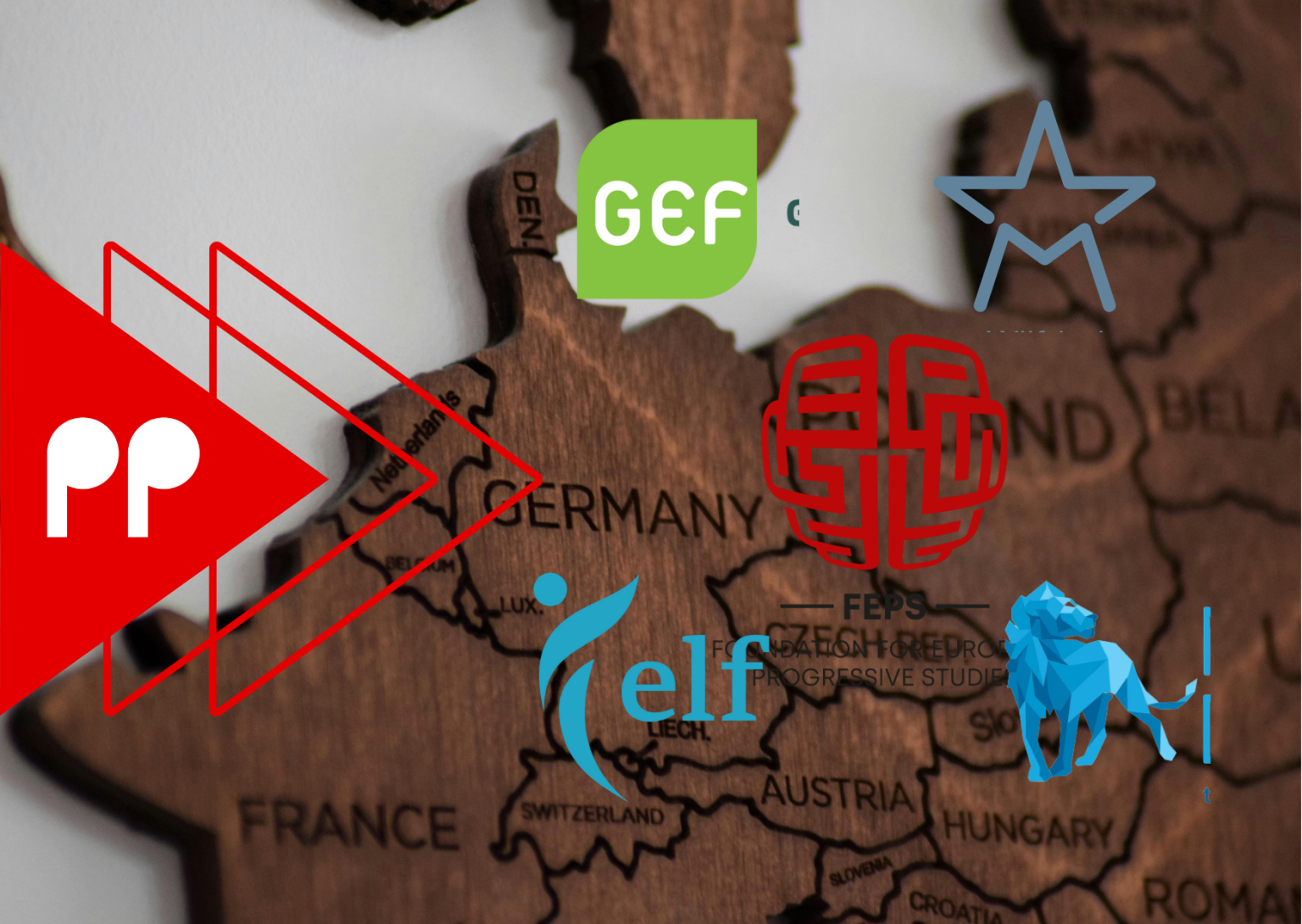Political foundations and think tanks are organisations closely linked to political parties but usually maintain a distinct legal status. These foundations conduct research, develop policy proposals, and engage in advocacy to influence public policy and political discourse. Their work extends beyond electioneering, focusing on political education, policy research, and international cooperation. With such a direct link to politics, we’re asking ourselves if political foundations should shift their role after the results of the EU elections—or whether they can still operate as is.
Political foundations in Europe: a diverse palette
Examples of significant political foundations include the German Stiftungen, such as the Friedrich Ebert Foundation (linked with the SDP) and the Konrad Adenauer Foundation (CDU), as well as institutions in other European countries like the Dr. Karl Renner Institut in Austria and the Fondation Jean Jaurès in France. At the European level, political foundations affiliated with European political parties, like the Wilfried Martens Centre for European Studies, the European Liberal Forum or the Green European Foundation, are influential. These European political foundations receive funding from the European Parliament to observe, analyse, and contribute to debates on European public policy issues through seminars, training, conferences, and studies.
Political foundations play a crucial role in promoting democratic values, enhancing governance, and fostering informed political participation. They conduct courses to educate party members
How political foundations promote democratic values after elections
The period immediately following an election is often marked by a flurry of activity and uncertainty. Newly elected officials and their parties are focused on negotiating power structures, forming coalitions, and setting initial policy agendas. This is a good time for political foundations to engage and play a supportive role, ensuring that the values and promises set by the political party are kept in mind during the negotiation process. Here are five ways they can do that.
Defining red lines in post-election negotiations
In the aftermath of an election, political parties are primarily concerned with securing power and forming coalitions, often requiring compromises. Political foundations can serve as custodians of core values and policy principles, ensuring that essential issues are not sacrificed in the pursuit of power. By identifying and advocating for specific “red lines” in policy negotiations, foundations help maintain the integrity of party platforms.
For example, foundations might insist on the importance of maintaining environmental protections, upholding human rights, or ensuring economic equity. By highlighting these critical areas, political foundations provide a counterbalance to the often pragmatic and opportunistic nature of post-election deal-making.
Post-election training programs by political foundations
Newly elected politicians and their staffers sometimes need specific training to effectively fulfil their roles. Political foundations can offer valuable programs that cover different topics, ranging from leadership, crisis management, diversity and inclusiveness, to overviews of policy processes. Training in these areas ensures that new leaders are equipped to govern ethically, respond to crises effectively, embrace diversity, and understand the intricacies of policy development. Additionally, public communication skills are emphasised to help politicians engage effectively with the public and media. So, political foundations help build a competent and responsive leadership.
Facilitating post-election dialogues and events
In the aftermath of an election, political foundations play a crucial role in organising events that facilitate dialogue and cooperation among various stakeholders. These events, such as policy forums, debates, and international conferences, create platforms for the exchange of ideas and best practices. By bringing together politicians, experts, civil society, and international partners, foundations help build consensus on important issues and foster a more informed and engaged public discourse. They also keep dialogues open both during an election campaign and in the aftermath.
Post-election advocacy and lobbying
Foundations often have the resources and expertise to connect diverse stakeholders, including policymakers, academics, industry leaders, and the general public. Through advocacy efforts, political foundations can advance specific policy agendas that align with their ideological goals.
This might involve advocating for legislative changes, influencing public opinion through media campaigns, or working directly with policymakers to shape new policies. And doing that after an election might help shine light on certain policy issues and put them higher on the priority list of targeted politicians. This way important issues remain on the political agenda and that diverse perspectives are considered in the policymaking process.
Focusing on long-term goals after elections
While the immediate post-election period is often dominated by short-term considerations and political manoeuvring, political foundations have the capacity to focus on long-term strategic goals. They can help shape the strategic vision for a country’s future by conducting in-depth research, publishing policy papers, and developing comprehensive policy frameworks.
Long-term strategic vision includes promoting diversity and inclusion, youth leadership, gender equality, and rigorous policy research. Foundations also follow the implementation of party policies, conduct surveys, and create strategies for continuous monitoring until the next election cycle. By maintaining a focus on sustainable and forward-thinking policies, political foundations ensure that current decisions do not compromise future generations.
Champions of holistic politics
Post-election periods often bring new policy directions and priorities. Political foundations can help ensure coherence between all the different policy areas by promoting integrated approaches and preventing policy silos. Their holistic approach to politics is the best at keeping political parties in check, because of the trust they build with politicians through their activities.

